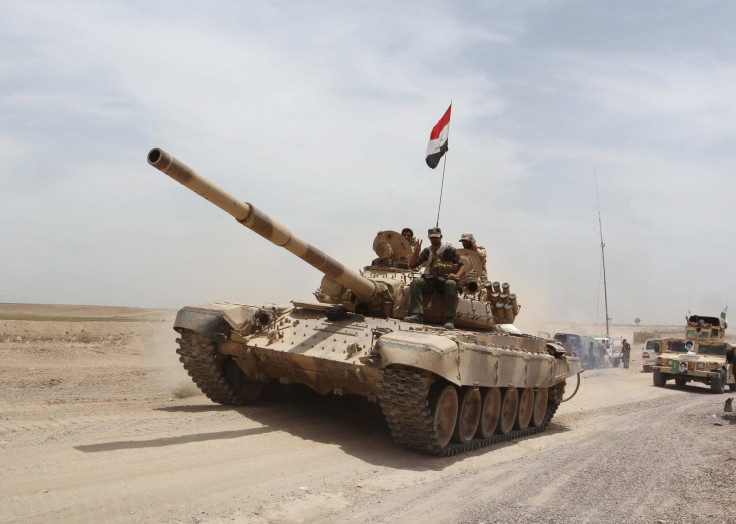Iraqi Security Forces Advance Near Ramadi in Albu Faraj; US Says Forces Could Take Key City Soon

Iraqi security forces have encircled the beleaguered city of Ramadi in Iraq's western Anbar province, officials in the U.S.-led coalition to fight the Islamic State group said Wednesday. The Iraqi forces gained back ground in several key villages in the countryside of Ramadi after coalition forces bombed four key targets that destroyed ISIS buildings and minefields.
The Iraqi security forces (ISF), having been trained and equipped by U.S. military advisers over the past six months, are finally ready to launch a major assault on Ramadi to retake the city from the Islamic State group, also known as ISIS, the Pentagon said.
Army Col. Steve Warren, a spokesman in Baghdad for the U.S.-led coalition, said in a press briefing Tuesday that Iraqi ground forces have advanced 9 miles in recent days and are in the city's outer suburbs.
"Iraqi ground forces recently trained by the coalition have been deployed around Ramadi in time for the decisive phase of this operation," Warren said. The Iraqi government was slated to launch the offensive in Ramadi in July, but it delayed the operation until it could train its soldiers and recruit more to disable improvised land mines.
"We now believe that battlefield conditions are set for the ISF to push into the city," Warren said.
The main battle is taking place in Albu Faraj, a village just north of Ramadi. Over the past two days, the U.S. coalition has bombed dozens of ISIS targets, including convoys and weapon depots. Several posts on Twitter seemed to show videos of members of the ISF raising the Iraqi flag in Albu Faraj Wednesday afternoon, indicating they had taken full control of the village. Leaders in the Iraqi military have yet to announce a victory there.
Warren said in his briefing Tuesday that there were thousands of Iraqi soldiers taking part in the Ramadi battle, the majority trained and armed by U.S. military advisers. It is unclear if the U.S. effort to train these soldiers will translate into a success for the ISF in Ramadi, especially since support from Sunni tribesmen is still lacking.
The battle for Ramadi began last year. Each week, it seemed, ISIS would advance, and then fall back. The Sunni tribesmen and local police forces in Ramadi were fighting the militant group almost entirely on their own, with little help from Baghdad and what leaders said were "few and inefficient" U.S. airstrikes. For a while, despite the lack of support, the Sunni tribesmen stopped ISIS from taking the entire city, fighting the best way they knew how. They lined underground tunnels with explosive devices and detonated them when ISIS tried to advance. They fired rocket-propelled grenades at ISIS military outposts. And that seemed to be enough, Sunni fighters said.
But at the end of May, ISIS finally managed to take the entire city under its control.
Some Sunni tribal leaders in Iraq’s Anbar province helped the Islamic State group take over the provincial capital, Ramadi, officials in the city said in interviews with International Business Times in May. The tribal leaders provided the Sunni militant group with intelligence, cash and weapons that helped it defeat the U.S.-backed Iraqi military forces and gave it the upper hand in the battle.
Sheikh Ali Hatem al-Suleiman, the leader of one of the largest Sunni tribes in Anbar, the Dulaim, is said to be working directly with the Islamic State group, Anbar tribal leaders told IBT. Suleiman has been an active opponent of the Iraqi government, especially when Nouri al-Maliki, a Shiite, was prime minister between 2006 and 2014.
The Sunni tribesmen's support of ISIS could impact the upcoming offensive in Ramadi if they refuse to cooperate with the Iraqi security forces. If the Sunni tribesmen are still sending arms to ISIS and providing intelligence, it could once again give the Sunni militant group the upper hand in battle.
© Copyright IBTimes 2024. All rights reserved.




















